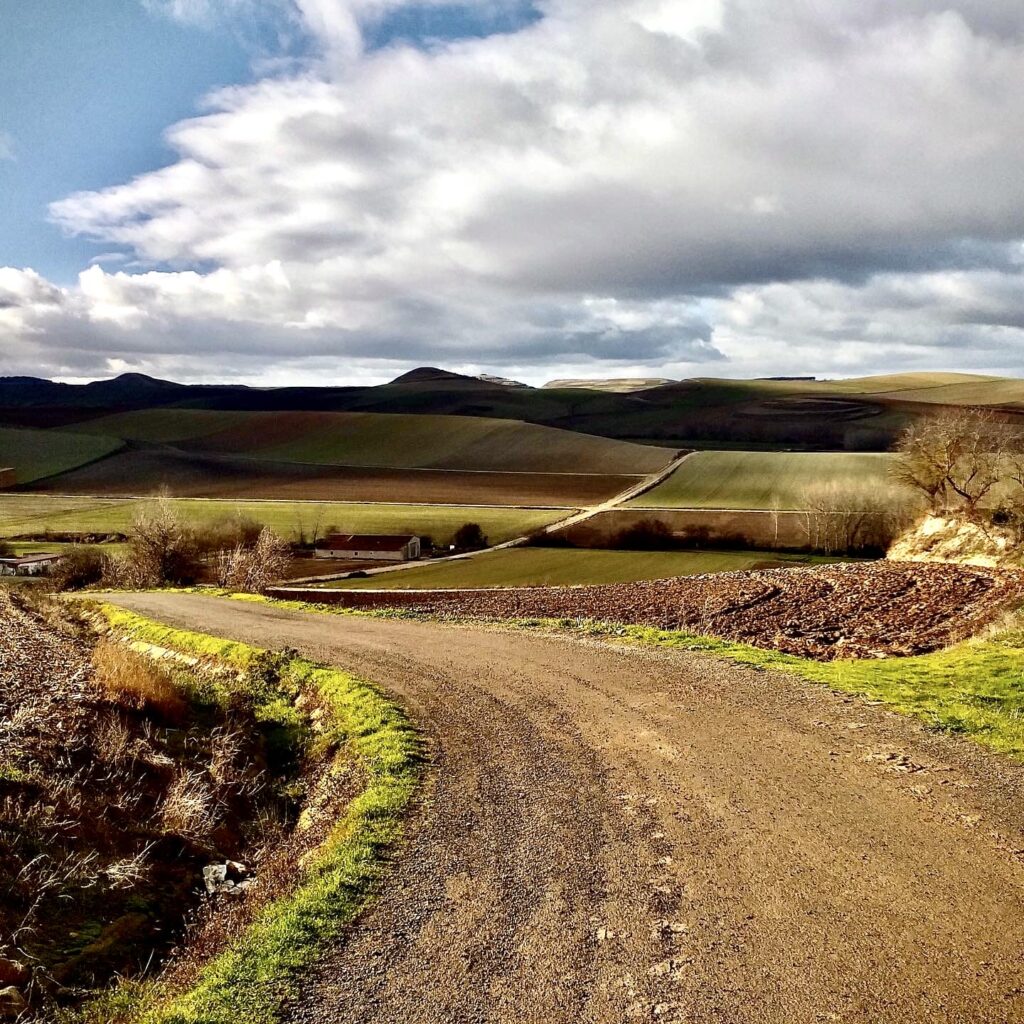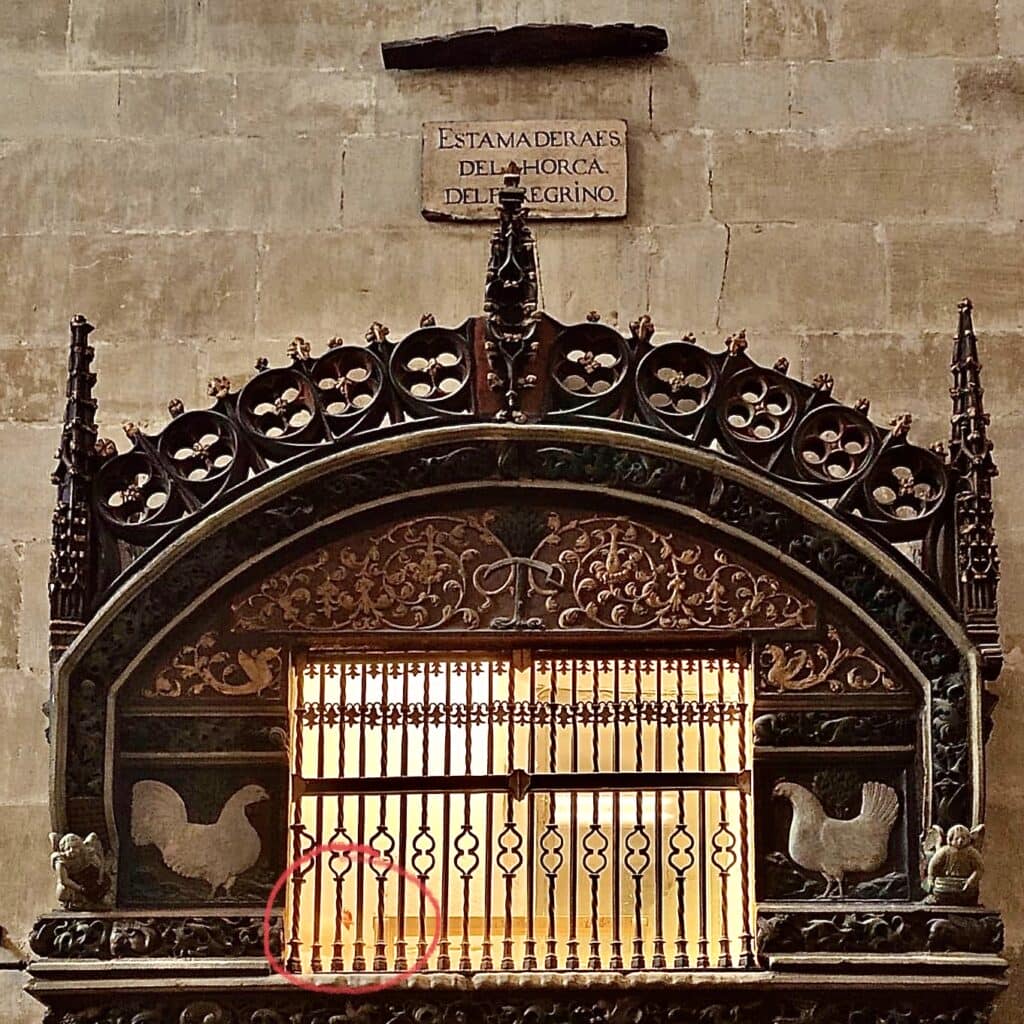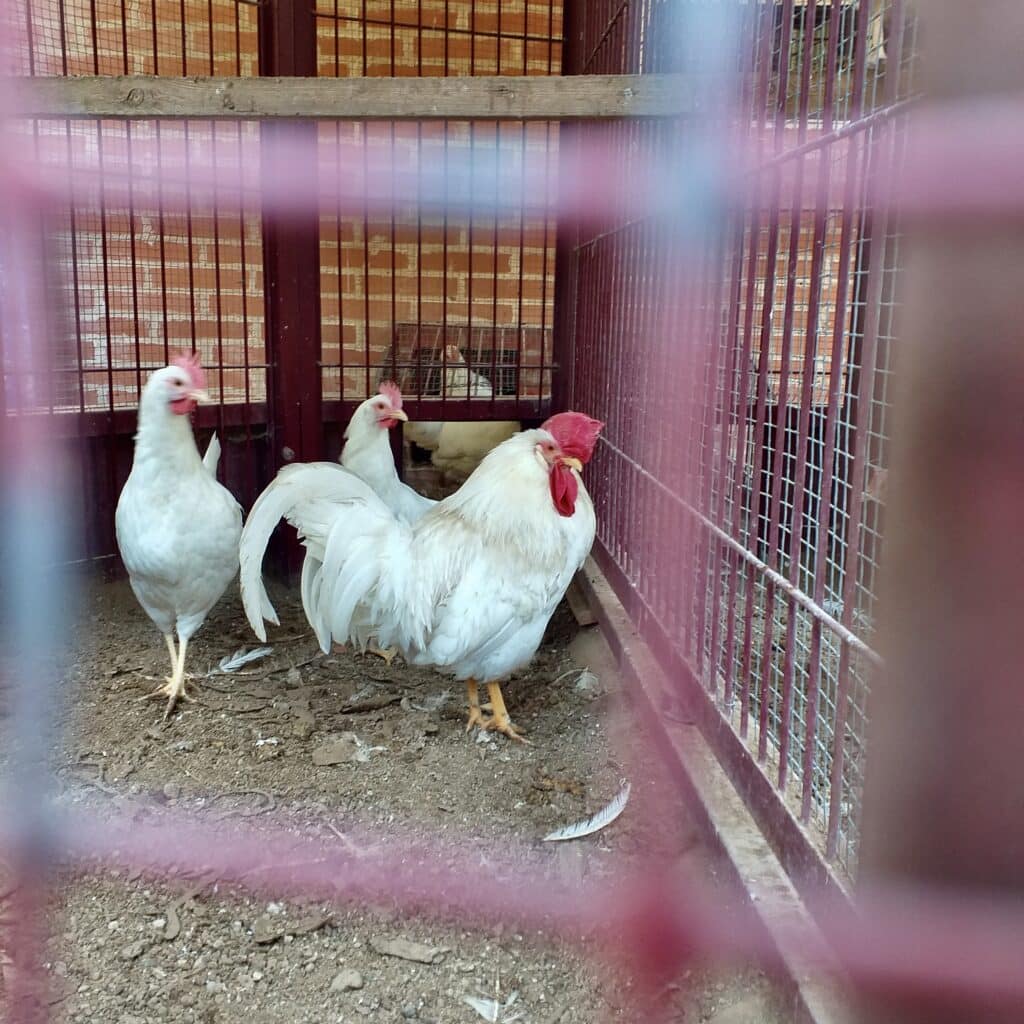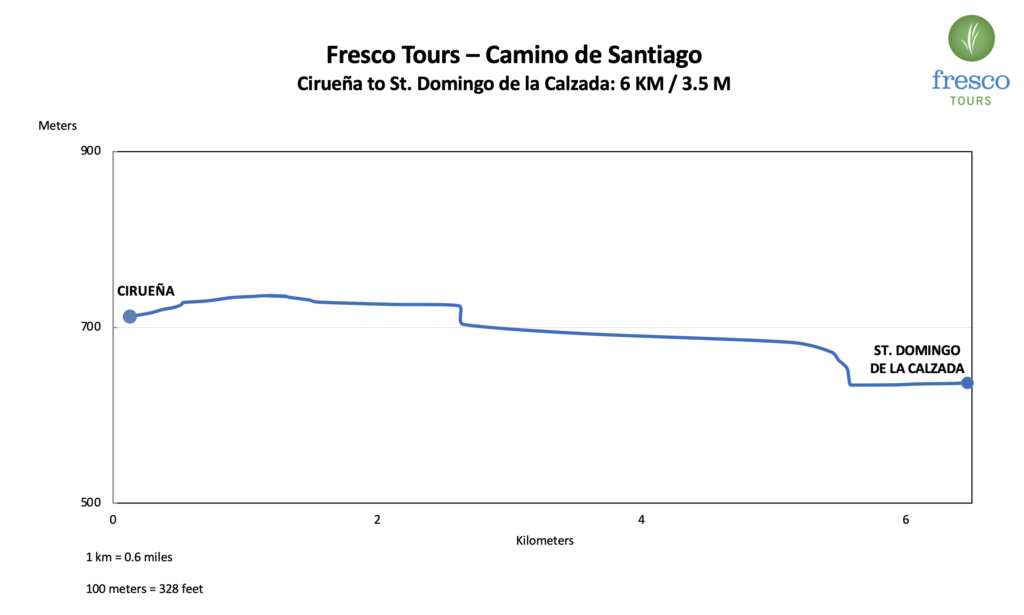Today we visit Santo Domingo de la Calzada and sleep in Burgos. After a short ride from Logroño, we start our walk in the town of Cirueña, in the heart of the La Rioja wine region. Here, the Camino makes its way through miles of vineyards, with spectacular views of the surrounding mountains.

The short walk brings us to Santo Domingo de la Calzada, an important stop on the Camino de Santiago and home to one of the most curious Camino stories.


The story of Santo Domingo de la Calzada is closely tied to the life and legacy of Santo Domingo and the town named after him.
Santo Domingo was born in 1019 in Viloria de Rioja, near Santo Domingo de la Calzada. He dedicated his life to helping the many pilgrims traveling along the Camino de Santiago in the 11th century. He is best known for his work in improving the infrastructure of the Camino, including the construction of bridges and roads, which made the journey safer and more accessible for pilgrims. This gained him the nickname ‘de la Calzada’, which roughly translates as ‘of the road’.
The most famous legend associated with Santo Domingo involves a young German pilgrim named Hugonell. According to the legend, Hugonell was falsely accused of theft by the daughter of an innkeeper in Santo Domingo de la Calzada and was subsequently taken to be hanged for theft. His distraught father ran to the local magistrate and pleaded his son’s innocence. The magistrate, not believing the father, as the missing silver goblet had been found in the Hugonell’s possessions, jokingly told him that if his son was innocent, the roasted chicken he was eating would come to life and crow. And this is exactly what happened. The story ends happily for father and son, who continue their pilgrimage to Santiago.

In commemoration of this miracle, a pair of live white chickens (a hen and a rooster) have been kept in the town’s cathedral as far back as anyone can remember as a symbol of Santo Domingo’s intervention. These chickens can still be seen today. In case you are concerned about the chickens’ welfare, the pair are replaced regularly and allowed to recover from their time in the cathedral at the local Fraternity of the Saint’s quarters. Here they breed more white hens and roosters and allow the replacements to live.







